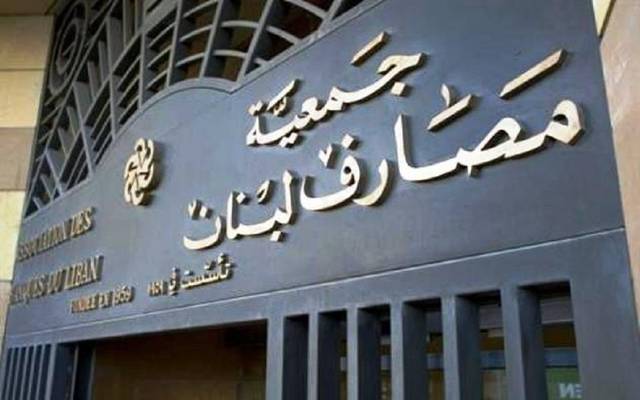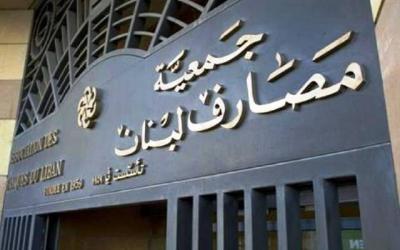The newspaper Asharq Al-Awsat reported that a meeting of the Lebanese government aimed at addressing the implications of judicial decisions related to the banking sector did not yield any decisive results. The previous decisions made in recent days remain "under discussion with judicial authorities," while the meeting laid the groundwork for correcting subsequent judicial decisions by reviewing them with the Public Prosecutor before any major decisions are taken by public prosecutors, in accordance with the Code of Criminal Procedure.
The Lebanese government convened yesterday in an extraordinary meeting to address recent judicial decisions, including the putting of attachment notices on the assets of six Lebanese banks and their board chairs by the public prosecutor in the Mount Lebanon region, Judge Ghada Aoun, and enforcement decisions against the banks "Fransabank" and "Lebanon & the Middle East." This has sparked a crisis between the judiciary and the banking sector, which announced a warning strike for the upcoming Monday and Tuesday.
A source familiar with the government meeting informed Asharq Al-Awsat that the meeting "did not yield positive results as expected," but rather "seemed like an attempt to ease tensions to prevent matters from worsening." The source clarified that the meeting "did not find a decisive resolution to the decisions taken by Judge Ghada Aoun," noting that the file "is still revolving around finding a sustainable solution to the relationship between the executive and judicial authorities and the topic of separation and cooperation between them." Additionally, the previous decisions made over the past few days "are still under discussion with the reference between the Minister of Justice and judicial authorities."
Alongside the indecision regarding recent developments and the presence of "confusion" within the executive authority concerning recent events, the government established a framework for understanding the upcoming phase. The source explained that "the discussion revolves around each prosecutor conducting the required investigations within their powers but not making any significant decisions without consulting the Public Prosecutor," who, according to the Code of Criminal Procedure, oversees all public prosecutions.
Prime Minister Najib Mikati confirmed after the meeting that "neither I nor the ministers are convening to protect any specific sector; our goal is to maintain balances that prevent reaching a stage where all sectors become losers." He reiterated his and the ministers' commitment "to the independence of the judiciary, refraining from interfering in judicial affairs out of respect for the principle of separation of powers." He stated, "In parallel, and based on the government's responsibility to chart the public policy in the country, and in line with the principle of cooperation among the authorities and ensuring balance, we requested that the law follow its course without any discrimination or selectivity, and that initiatives to address judicial matters be taken according to the procedures and powers stipulated by prevailing laws, by the judicial authorities according to their particular jurisdiction, in a manner that preserves the rights of all, especially the rights of depositors."
Mikati clarified that "there was a consensus among the ministerial judges in the session that some judicial procedures taken are not in the correct place; thus, we discussed correcting the judicial course." He added, "The four judges agreed on what the public prosecution can or cannot do, and that the Central Bank should be consulted regarding the attachment on any bank, and it is essential to adhere to the Code of Criminal Procedure, particularly articles 15, 16, 17, and 19, especially article 19 which stipulates that the Public Prosecutor should play their role. Hence, our statement that those concerned should assume their roles, and we will monitor this matter and follow up. Our goal is to regulate judicial work in every sense of the word and we are not a party with anyone."
Mikati emphasized that "all dialogue that took place today in the Cabinet was not to protect banks or the Governor of the Central Bank; rather, we are protecting institutions and a country." He stated, "Matters must proceed according to what the laws require in every sense of the word. When I talk about protecting the Central Bank, it is self-evident to protect the judicial body and judges, the majority of whom have experience and issue decisions and verdicts that are well-respected."
The government confirmed yesterday the decision made in the previous session assigning the Minister of Justice to formulate a vision to address judicial situations and resolve any issues that may arise and to present it to the Cabinet soon. It also tasked the Minister of Finance to request that the Central Bank take the necessary measures, immediately, to prevent setting withdrawal limits for salaries and pensions deposited in banks.
Mikati stated, "We were informed during the session by the Deputy Prime Minister about the urgency of working on finalizing the recovery plan and the associated legislation for presentation and approval by the Cabinet," and also "urged the honorable parliament to expedite the approval of the capital control law." He reiterated "the priority of preserving the rights of depositors, especially small depositors."
Regarding the recovery of depositors' money from banks, Mikati said, "Within the framework of the economic recovery plan that the committee tasked with negotiations with the International Monetary Fund, chaired by the Deputy Prime Minister, is developing, the issue was raised, and about 90% of the total number of bank depositors will have their funds guaranteed by the Lebanese state and paid to them, specifically small depositors." Mikati also urged the Banking Association "to operate at the national level, as we have known it, and not to lean toward a negative path, so we can cooperate to overcome the crisis."
After banks announced their warning strike on Monday and Tuesday, the Depositors Association submitted a request "for an urgent order before the urgent matters judge in Beirut to issue an immediate enforceable decision requiring the banks gathered in what is called the Lebanese Banking Association to refrain from closing and to open their doors to depositors to benefit from the services they contracted to provide, as this strike falls under the category of abuse of right."




